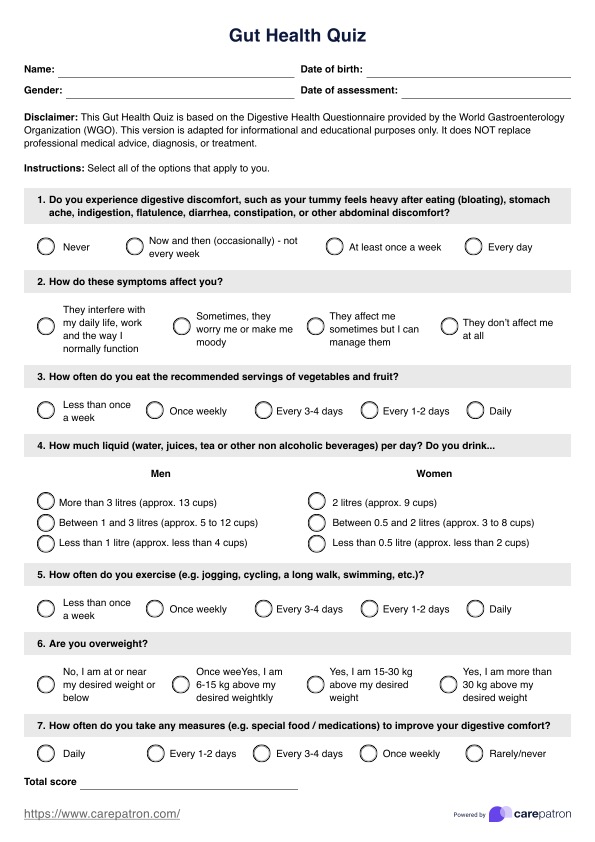Examining the endocrine system involves assessing symptoms, reviewing the patient's medical history, and conducting specific diagnostic tests to evaluate hormone levels and gland function. This comprehensive approach helps identify any imbalances or disorders affecting the body and endocrine system.

Gut Health Quiz
Discover how Carepatron enhances digestive health management with customizable templates, secure data, and improved patient-provider communication.
Gut Health Quiz Template
Commonly asked questions
Assessment techniques for endocrine disorders include blood tests to measure hormone levels, imaging studies to visualize gland structure, and dynamic testing to evaluate gland function and response to stimulation or suppression.
You should consider seeing an endocrinologist if you frequently experience symptoms suggestive of an endocrine disorder, such as unexplained weight changes, fatigue, or irregular menstrual cycles, or if you have been diagnosed with an endocrine condition and need specialized care.
EHR and practice management software
Get started for free
*No credit card required
Free
$0/usd
Unlimited clients
Telehealth
1GB of storage
Client portal text
Automated billing and online payments











